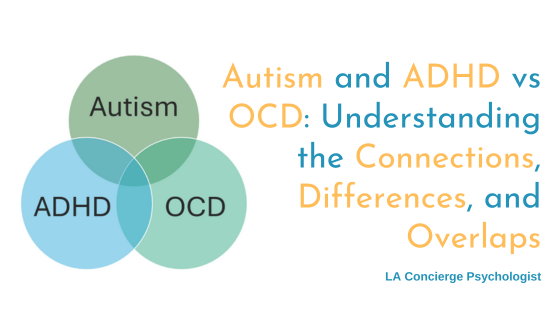Even under the most ideal circumstances, college is a time of challenges. In college, students juggle competing responsibilities and activities, handle stressful transitions, and face independently managing themselves for the first time. Not to mention, managing a newly open and less structured schedule requires some serious executive functioning skills. And for students with attention deficit hyperactivity disorder (ADHD), handling all of that can be a real struggle.
ADHD Symptoms in Emerging Adults
There are three subtypes of ADHD:
- Predominantly Inattentive Type
- Predominantly Hyperactive-Impulsive Type
- Combined Type (Inattentive and Hyperactive/Impulsive symptoms)
While symptoms can range from mild to severe, they all fall into three general categories:
Inattentive Symptoms
Symptoms such as:
- Losing focus
- Forgetfulness
- Easily distracted
- Difficulty completing a task
- Slow processing of information
- Daydreaming
- Misplacing things
- Struggling to listen and/or follow directions
- Trouble learning something new
- Quick to boredom
Impulsivity Symptoms
Symptoms such as:
- Quick towards impatience and/or frustration
- Unwilling or unable to wait for one’s turn
- Unable to put off gratification
- Frequently interrupting
- Act first, think later
- Wearing one’s heart on their sleeve
- Inappropriate comments
Hyperactivity Symptoms
Symptoms such as:
- Inability to sit still or work quietly
- Sleep disturbances
- Constantly moving
- Constantly talking
- Inappropriate touching
What is Executive Functioning?
It may sound like a hot buzzword, but executive functioning has always been around. It enables you to manage your resources in the process of reaching a goal. Success requires self-regulation and mental control qualities that are particularly relevant in college life. Now, re-read those symptoms lists above and ask yourself where and how self-regulation and mental control are needed.
So you might be thinking, what does ADHD have to do with executive functioning skills? People with ADHD struggle with executive functioning. Thus, a college student with ADHD is very much in need of useful tips, strategies, hacks, and methods in the name of managing resources and attaining goals.
6 Executive Functioning Tips for College Students with ADHD
1. Self-Care
The best version of you is a product of self-love and self-care. A daily ritual would involve components like:
- Regular sleep patterns
- Daily activity and exercise
- Healthy eating habits
- Relaxation techniques and stress management
Self-care is foundational to good executive functioning. Just think about it. The last time you were sleep deprived, you probably had a hard time focusing or struggled to adequately problem-solve. When your mind and body are cared for, your executive functioning jumps up a few levels.
2. Identify Triggers
When you know what distracts you, you reclaim your power over ADHD. This is because you can then problem-solve to avoid or address those triggers. For example, you may find that studying in your dorm is impossible. There’s too many temptations to chat with your roommate or take a quick nap. So, instead, you decide to study in the library where there are no triggers. Pay close attention to your personal patterns in order to set the stage for success.
3. Become Best Friends With Your Planner
You may feel like you have an excellent memory, but don’t leave things to chance. Figure out what kind of planner works best for you (e.g., phone calendar, old school paper planner), and then use it! Put in your class schedule and then build in time to do homework, study… even socialize and engage in self-care. Your planner is your daily map on what needs to be done (plus when and where).
4. Break Work Down Into Smaller Chunks
It’s tempting to procrastinate and leave your big paper until the week it’s due, but that’s setting yourself up for some major stress. Be sure to take those big, long-term assignments and break them into small, bite size chunks. Then put it in your planner so you have time set aside to work on it. Additionally, take this same approach with studying. Break studying into smaller chunks and schedule in breaks — preferably breaks that recharge you.
5. A Place For Everything, Everything in Its Place
When I help clients with physical organization, I talk about their belongings having a place “where it lives”. Basically, you find a place in your room for each item and make sure it finds it way back there when you’re done using it. Your phone may go on a particular table to get charged. Your keys hang on a hook by the door. Each class’ homework assignments get filed away in color-coded folders, which go in your bag.
Whatever system you create, keep it simple with the least opportunities for things to go awry. Then, the goal is to make it a new habit. Do it over and over again until it’s second nature. You’ll never lose anything again!
6. Seek Out Available School Services
You may be tempted to go it alone, but everyone needs support sometime. And if you struggle with ADHD, you may actually be entitled to some supports and accommodations through your college or university. Before the going gets tough, stop by your school’s educational access or students with disabilities office (they call it something different at each place). Find out what accommodations and free help you might be able to obtain. Even if you don’t use it right away, there’s peace of mind knowing you can get it when you do need it.
Sometimes schools will offer some form of counseling. However, you may wish to consult and commit to an adult ADHD specialist instead of using your school’s generalist services. Your weekly sessions can become a safe space to develop your executive functioning skills and workaround strategies.
Read more about our neurodivergent-affirmative work with adult ADHD-ers. Send us a message or book a free 20 minute consultation call with Dr. Barajas or Dr. Goldman.



